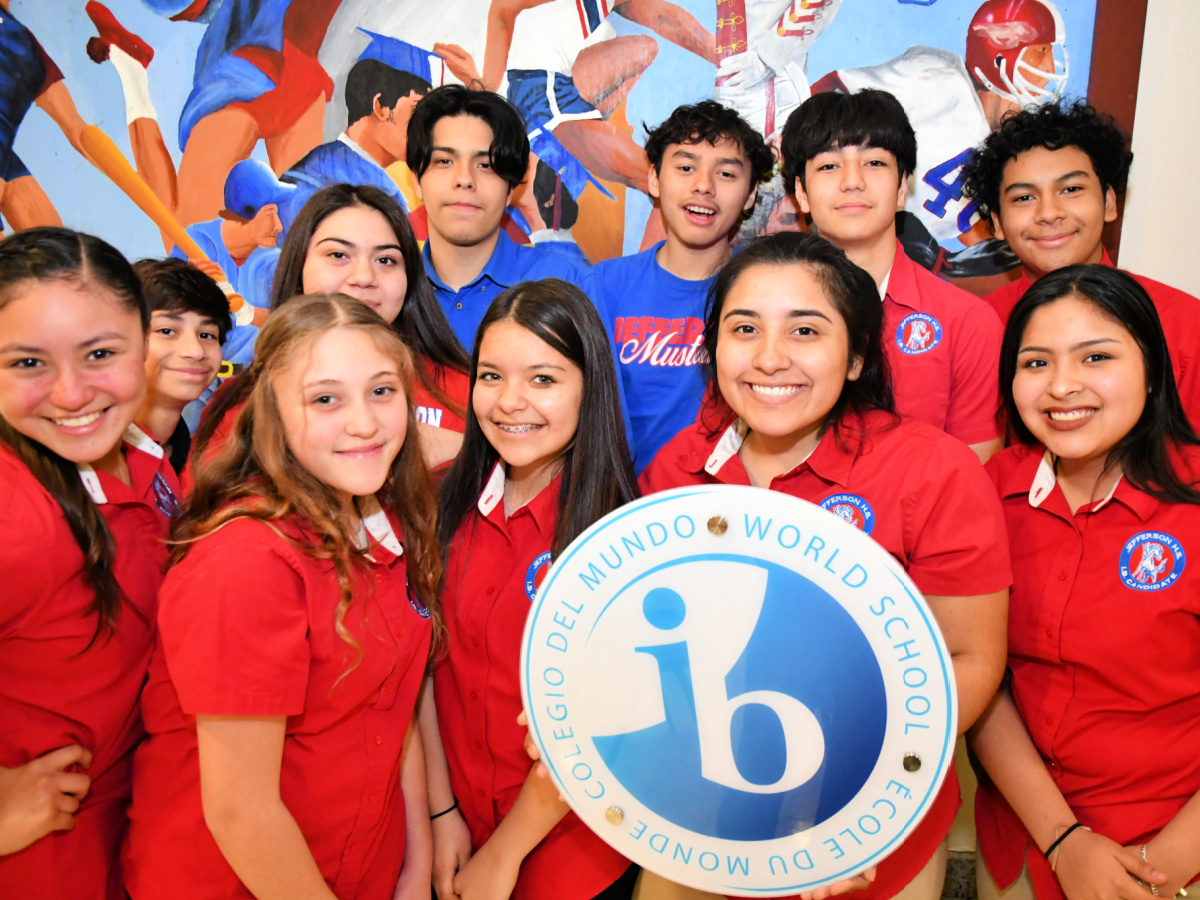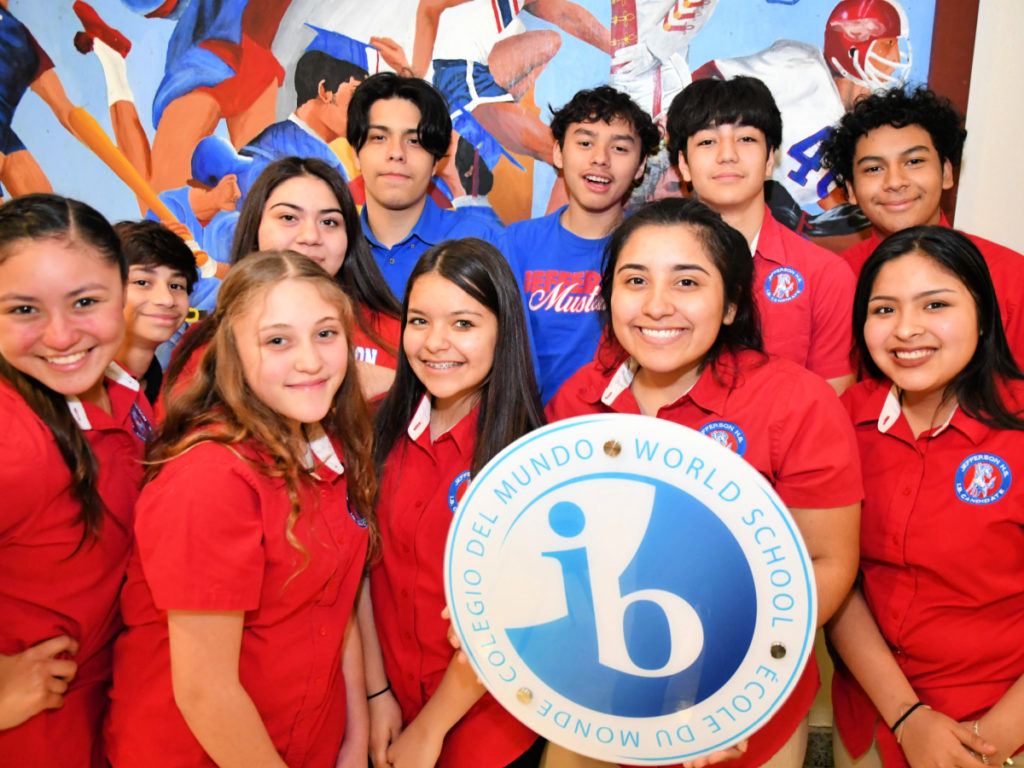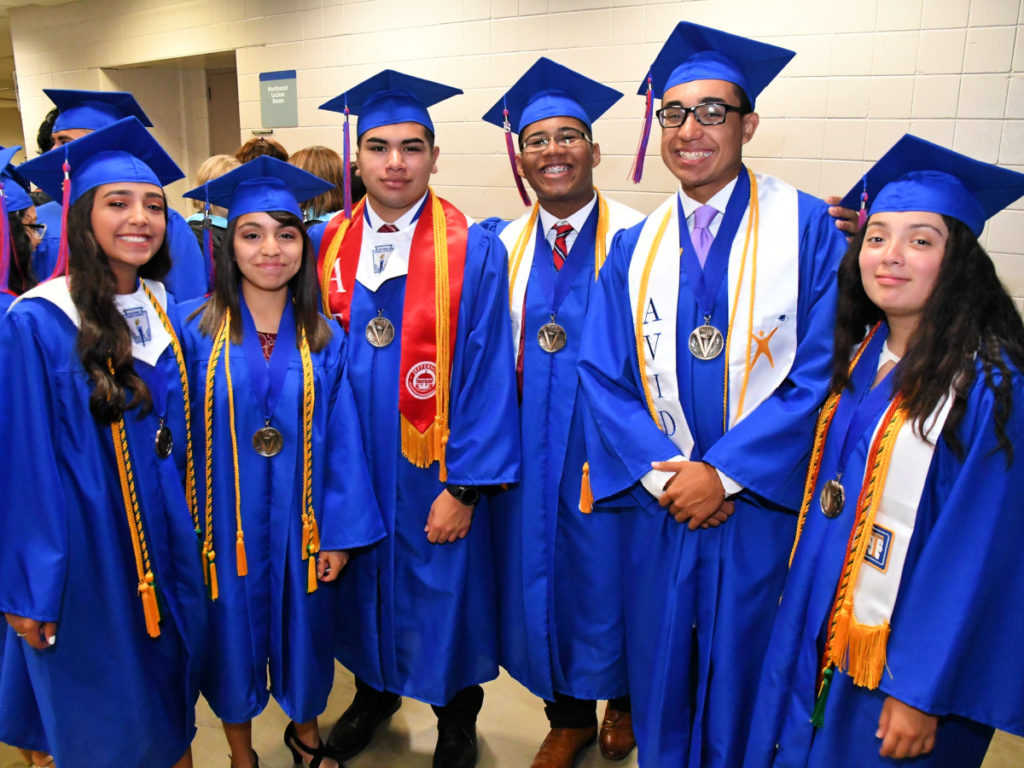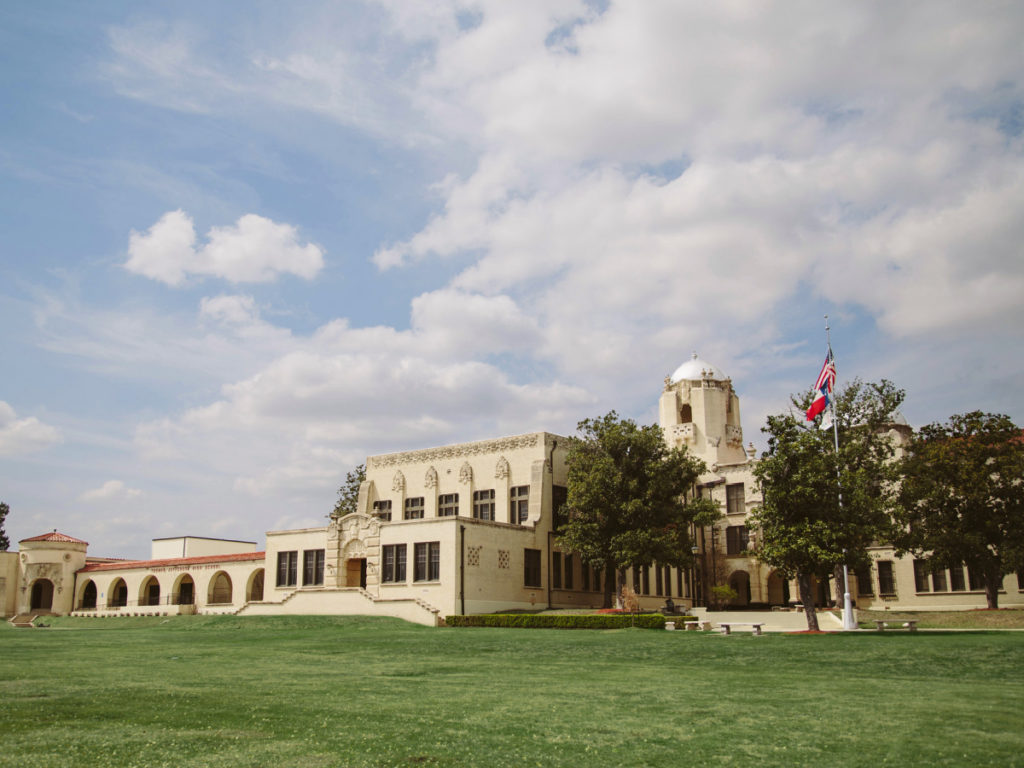We are proud to present this guest post by Ralf Halderman, Head of School at Thomas Jefferson High School International Baccalaureate World School, and Chris Stanley, Associate Principal for IB.
In 2018, when I came to Thomas Jefferson High School in San Antonio ISD, one of our city’s most historic high schools, it had just begun its journey to become an International Baccalaureate World School, and I was uncertain about it. If I committed to it, it would mean bringing not only a whole new language to our school—with words like programme, middle years, diploma programme. It would mean bringing a whole new education model, one that requires students to be active participants in their education, that requires teachers to teach by asking far more questions than they give out information, that means acquiring language skills in multiple languages be made a priority, that subjects not be taught in isolation. But even deeper than those changes, committing to the International Baccalaureate would mean committing to not just educating children but developing them into whole people who are inquirers, knowledgeable, thinkers, communicators, principled, caring, open-minded, reflective, balanced, and risk-takers. These make up the IB learner profile, the cornerstone of the International Baccalaureate.
When I was coming to my decision on whether to take on the challenge of transitioning to IB, I knew the change would take a tremendous amount of work. That was not the focus of my decision. My decision was focused on whether or not I thought this would be a meaningful change for my students.
I came to my answer while researching the IB. I found that it was not a new idea in education, but had a fifty-year history of success in developing students into well-rounded people for whom learning never stops and who are driven to have an impact on the world. I found that across the globe, IB is considered a premier education model and that colleges and universities in the United States and around the world actively seek out IB students. My decision was made.
Now that our school is an IB World School, and the language of IB has become the primary language of our campus, I can say I without a doubt that I made the right decision for my students. My students tell me the same thing.
Just the other day, a student again confirmed this. He is a 2019 graduate of the IB Diploma Programme, that requires students to split their time between academics, extra-curricular activities, and community projects. Now as a college student, he had stopped by to visit his old campus. I asked him how he was doing. With a big smile on his face, he said, “Great.” While college was not easy, he explained, it was absolutely something he could succeed at because he had learned how to take on just as much if not more as an IB Diploma student. Teachers had supported him and encouraged him to stretch, grow, and realize all that he could accomplish.
Today during one of the most trying times in our world’s history, IB students at Jefferson are virtually collaborating with students from Palestine and Algeria, discussing global issues and how people can come together from around the world to solve difficult issues. These IB students are beginning to see not just their own future success but the impact they could have on the world.
The San Antonio Independent School District now offers a continuum of International Baccalaureate learning from preschool to graduation at Briscoe Elementary, Huppertz Elementary, Woodlawn Hills Elementary, Fenwick Academy, Woodlawn Academy, Harris Middle School, Longfellow Middle School, Burbank High School, and the campus where I am Head of School—Jefferson High School.
To learn more, and to apply for enrollment at these schools, please visit the enrollment guide blog post, or go directly to saisdchoice.com, where you’ll find a guide about IB schools.
Note About the Culturlingua Project
The Culturlingua Project involves a group of IB Diploma students at Jefferson High School, in conjunction with the SAISD LAVA Program (Student Leaders). Students participate a semester-long, cross-collaboration with students in Palestine and Algeria. Once per week, these students commit to a virtual interaction through Zoom with students in Palestine and Algeria—with an eight- or 6-hour time difference. They are collaborating to work on globally significant projects, including climate action challenge, peace and justice, environmental justice, and the zero hunger challenge. The students benefit from identifying solutions to some of these global issues while getting to know and learn with students from the Middle East and North Africa.
About the Authors
Ralf Halderman is the Head of School Thomas Jefferson High School International Baccalaureate World School. He wrote the main body of this post.
Chris Stanley is the Associate Principal for IB at Thomas Jefferson High School International Baccalaureate World School. He wrote the note about the Culturlingua project.
Charter Moms Chats
Watch D’Les Gonzales, San Antonio Director of Operations for the Texas Council for International Studies, speak with Inga Cotton on Charter Moms Chats on November 18, 2020 at 4 PM Central live on Facebook and YouTube.
D’Les Gonzales is the San Antonio Director of Operations of the Texas Council for International Studies. She holds a B.A. from the University of Texas at San Antonio and a M. Ed. from Concordia University of Texas. Her leadership positions include campus principal and district Instructional Leadership Senior Advisor to the Assistant Superintendent for IB.
Read More About International Baccalaureate (IB)
- “SAISD Enrollment Guide for Choice Schools in 2021–2022,” San Antonio Charter Moms, November 17, 2020
- “Guide to Enrolling in KIPP Texas—San Antonio Schools for 2021–2022,” San Antonio Charter Moms, November 3, 2020
- “San Antonio ISD Celebrates Addition Of International Baccalaureate Program,” Camille Phillips, Texas Public Radio, June 11, 2018
- “4 Advantages of the International Baccalaureate (IB) Program,” SchoolViews, Medium, November 20, 2017



